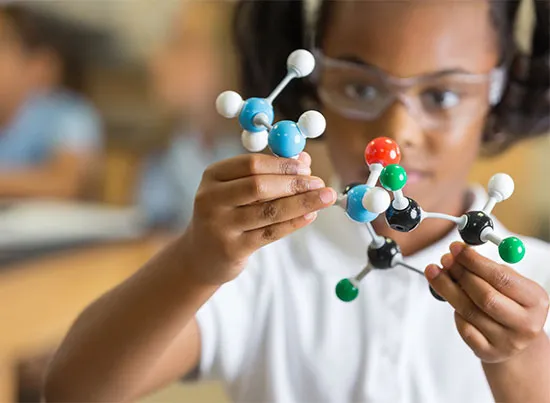Shawn Achor (An American happiness researcher, author, and speaker known for his advocacy of positive psychology) reports that only 25% of success in a job is based on your ability to do the job. The other 75% that contributes to success at work is down to your optimism, social support network and the ability to see stress as a challenge.
If this is true for adults then it must also be true of children who are learning.
Dopamine is the hormone that is released by the body when we are happy, but as well as making us feel the happy feelings, this same hormone also activates the learning centres of the brain, meaning that we are in a better state when we are happy. (It is a powerful hormone and its impact is well known by social media platform and video game designers. We get a small dose when someone likes our Facebook post or achieve some small milestone in a video game – it encourages us to prolong our engagement in the hope of getting a further dose).
As academic pressure on children increases and assessment becomes a greater focus, the children who come in to see me often have this idea that they need to do well in their tests, school work and homework to feel successful. When they are successful they are happy.
Should we not turn this on its head? Instead of working harder to feel happy with results, if they are happy first they will naturally be more productive and approach their work with a better attitude (and therefore do better).
I run programmes that can focus on happiness levels that will influence positive change in many other areas such as:
Attitude Improving (will become more positive and caring)
Reducing stress
Emotional difficulties (the atmosphere in the family home becomes more positive)
Social relationships will improve as interactions become easier, less fraught and friendlier
Productivity will increase because negative or stressful thoughts have reduced and ceased to take up so much time and attention
Behaviour will improve as there will be less conflict
These programmes contain many elements that are varied according to the child’s challenges but may include
Physiology: How you can use your body to create happy feelings. Understanding that your posture can have an impact on your mood and vice versa. (I worked with a child this week who proved difficult to reach, in half an hour he had said very little apart from the odd grunt. I challenged him to do more star jumps than me. Being a fit youngster he saw his chance to make a 55 year old man look daft and felt 35 jumps was enough. I made a big deal of finding it difficult to beat him but his whole attitude and mood had changed and we were able to engage.)
Words: How you should talk to yourself inside your head and out loud if you want to feel happy? If you tell yourself you will fail you will probably be right.
Gratitude: The benefits of doing random acts of kindness and focusing on the things you are grateful for. (You get that Dopamine the body craves!)
Mind Pictures: The ways to change old memories that make you unhappy.
Beyond this, I also look into communication with the child. We would encourage the child to spread the happiness within the school, with their friends and family. A child who processes a good attitude and commitment extends their chances of doing well in life because when we raise positivity, the brain operates better than it does in a state of negativity, stress or neutral mindset.(We have all seen those SAS or Navy SEAL training documentaries when the candidates are pushed to extreme limits, they are trying to identify those few people that can maintain a positive outlook when all around them is negative).
As the positivity rises on, so does resilience and productivity. This means that not only can a child enjoy learning now and in the future, but they will perform better as they do so. If this lesson can be learnt now at a young age the better the long term outlook for their future in achieving a well paying career and becoming an active, happy and responsible member of society.
Neuroplasticity means that our thoughts can change the structure and functions of our brains when we repeatedly think a certain way or do a certain thing. They can train their brains just like sportsmen and women train their bodies. This means that with repeated practice the child can develop a life long habit of thinking more positively.
In adult life the thing what will matter most for these children is their ability to be happy instead of anxious or depressed. To do that they need good mental health, good physical health and positive relationships. Putting happiness first creates a positive catalyst to being able to achieve all the other important elements in life and to learn the skills required to control ones own thoughts and emotions with the power of their thoughts and actions.
Get in touch now to give your child the happiness edge ian@aylesburytherapyforkids.co.uk
The original version of this article was written by Gemma Bailey, director ofwww.NLP4Kids.org. It was republished and rebuilt with additional content by NLP4KIDS PRACTITIONER Ian Davies.




